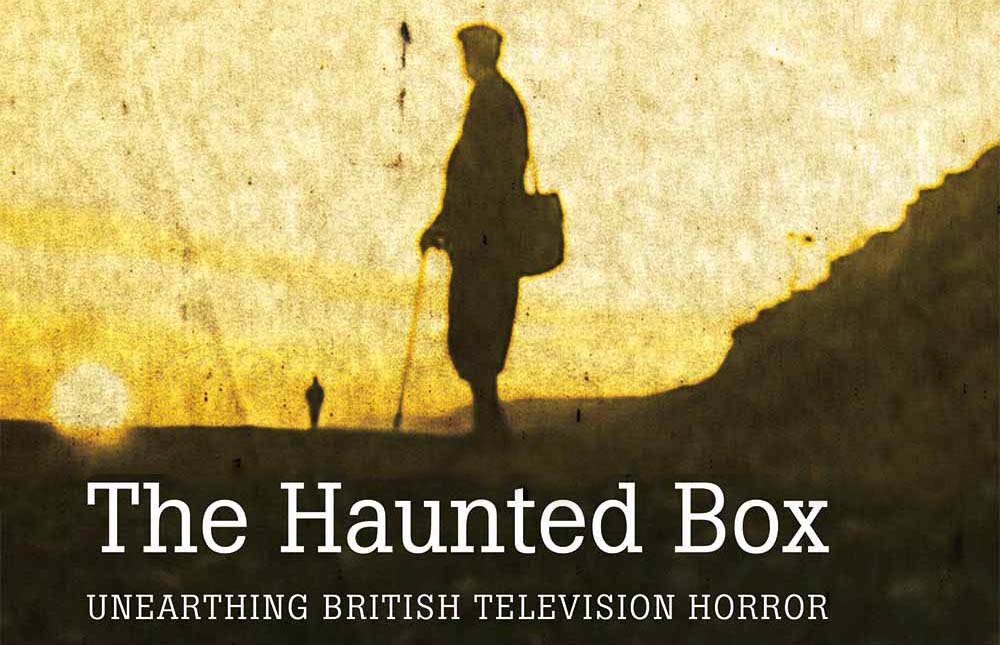
When TV was King. Musing on Penda’s Fen
This is another archive article taken from Creeping Flesh: The Horror Fantasy Film Book, a personal reminiscence of the 1974 magic-realism one-shot drama, Penda’s Fen. Directed by Alan Clarke, it is tough, as Clarke’s work tends to be, but this in a more ethereal way than, say, Scum and Made in Britain, et al. The writer is David Rudkin, a prolific stage and screen writer, who adapted The Ash Tree the following year, one of the BBC’s Ghost Stories for Christmas.
The article was published prior to Penda’s Fen availability on Blu-ray/DVD in 2016 and constitutes pastoral memories of my own for a good part. Again, resisting the urge to make changes, I would add one thing to the original text: Penda’s Fen remains a rare coming-of-age story in which the spiritual and physical awakening (and fears) of a boy is manifest in magic.
Penda's Fen
BBC Birmingham for Play for Today, BBC1, aired 21 March 1974
90 minutes, colour
Cast:
Jennie Hesselwood (Mrs Arne)
John Scott (Sir Nicholas Pole)
Spencer Banks (Stephen)
Georgine Anderson (Mrs Franklin)
John Atkinson (Reverend J. Franklin)
Crew:
Director: Alan Clarke
Producer: David Rose
Screenplay: David Rudkin
Film Cameraman: Michael Williams
Film Editor: Henry Fowler

What I Knew Then — 1970s and 1980s
I come to Penda’s Fen with strong memories. Rather, strong memories of two scenes. Anyone who’s seen the play could hazard a guess which ones they are. About the play I recall nothing else.
Of the two scenes: one involves a queue of children moving happily towards something unseen, although the sound of a repetitive dull thud gives the impression it can’t be anything pleasant. We discover at the head of the queue is a wooden block onto which each child places their hands, only to have them hacked off by a person wielding an axe. The other memorable scene involves the lead protagonist, a boy, waking at night to discover a gargoyle perched over him on his bed.
I don’t recall when exactly I first saw Penda’s Fen but I suspect it was its original broadcast back in the early seventies. It was repeated in the eighties and I stumbled across it again, rolling in from the pub one night. Having missed the opening titles, I remained none the wiser as to what the play might have been and no one I spoke with recollected a play having the scenes I described. Even people with fair knowledge of TV fantasy couldn’t shed any light on the mystery play, and for a time I suspected the whole thing may have been a phantasm.
I got pretty excited when I broached the subject among film folk in London one warm day. Kim Newman said the scenes came from something called Penda’s Fen.
Armed with this knowledge and through the illicit channels that lead to video enlightenment, I was finally able to secure a copy. Taped off air godknowswhen, the recording was of a quality that I hadn’t encountered since the heady mid to late eighties, swapping dodgy tapes behind the Victoria monument. The sound was bad and had to be cranked up high; the picture fragmented into snowstorms and rolled so badly that several chunks of the programme were obliterated.
But at last I had the opportunity to see it and relive it, and to exorcise those scenes…


What I Know Now — 2003
The first thing that struck me on watching Penda’s Fen again was how vivid and accurate my recollection of the two episodes mentioned above had been. It’s fair to say that these are the programme’s key sequences. The play isn’t exactly light viewing, and while it does have fantastical elements, these are bound tightly in analogy, some lengthy pontificating and much soul searching.
Penda’s Fen was directed by Birkenhead born Alan Clarke and first broadcast as part of the BBC’s Play For Today showcase in 1974. Adapting a script by David Rudkin, Penda’s Fen was not the most obvious choice of material for Clarke, better known as director of the gritty dramas Scum (both the banned BBC play and the big screen adaptation, 1977 and 1979), Made In Britain (1983) and The Firm (1988). But while Penda’s Fen is somewhat removed from the cityscape and urban degeneration of these later works, they share a fascination with class structure and fascistic characters — elements also present in Clarke’s successful stab at comedy, Rita, Sue and Bob Too (1986).
Penda’s Fen is about the religious, political and sexual awakening of a seventeen year old middle-class pastor’s son called Stephen. The strangeness commences when Stephen’s beliefs and values are thrown into question: he discovers papers written by his father that cast doubt on the orthodox teaching of Christianity, learns he is adopted, has gay yearnings, and even sympathises with Lefties. As a result he starts to see gargoyles, angels, has curious nightmarish visions, and muses philosophically with the composer Edward Elgar, who appears to him.
Stephen doesn’t come across as a particularly likeable fellow. He is pompous and arrogant and would be labelled a brat if he were a little younger. Despite the upheavals in his life our attitude towards him remains a constant — and with him as its central character the play itself remains cold.
But Penda’s Fen is interesting. It inhabits ground where risks could be taken in television; where BBC programmers didn’t necessarily have to understand what it was they were programming and slots like Play For Today were open to all kinds of misshapes.
Perhaps exasperated by a knock he receives on the head when he falls off his bicycle, Stephen is confronted by demonic images and the possibility that the mythological ancient pagan ruler of the land, King Penda, is reaching out to him. Whilst playing the organ in church, Stephen witnesses the floor cracking open and hears a voice asking to be freed. Later, in the final scenes of the play, he is approached by a man and woman on a hill and told that he is the chosen one.
He refutes this, saying that he is neither pure racially, religiously or sexually. His legs are then set on fire and he calls to Penda for help, who appears and scares away the couple. Having bestowed some words of wisdom on him, Penda disappears and Stephen is left to walk down the hill alone.
And that’s how it ends.
The couple represent heterosexualism and, in my opinion, the ending signifies that Stephen has come to terms with what and who he is. But what of the hand chopping dream, what does that signify?

David Kerekes
Like this article?
Related Posts
Comments
Copyright © Headpress


